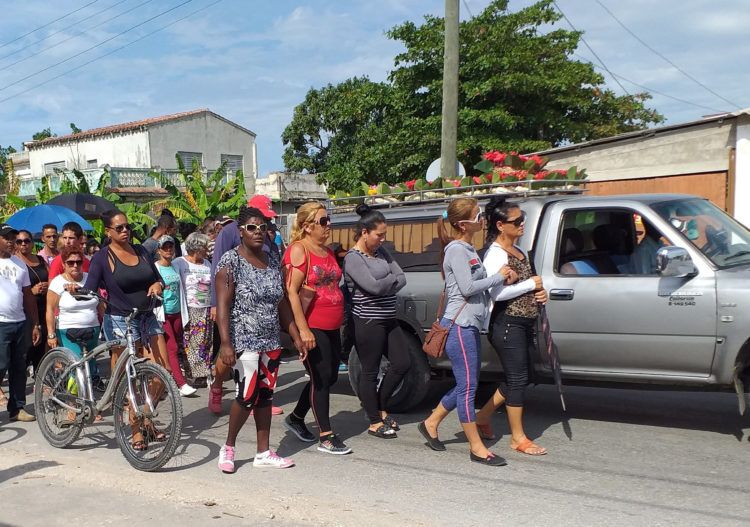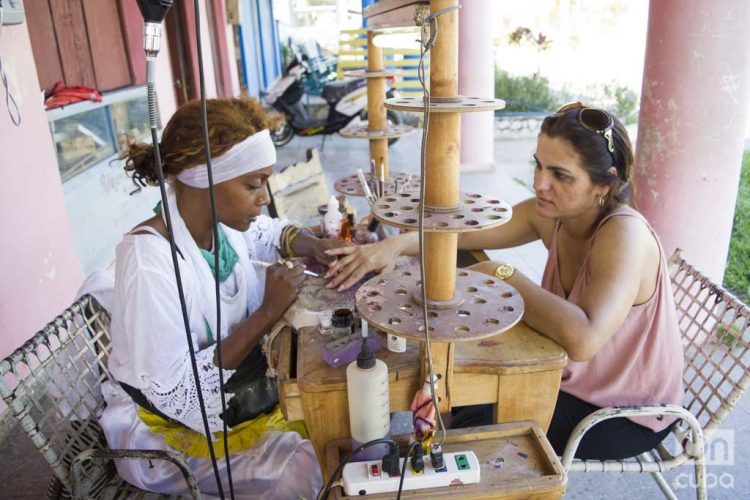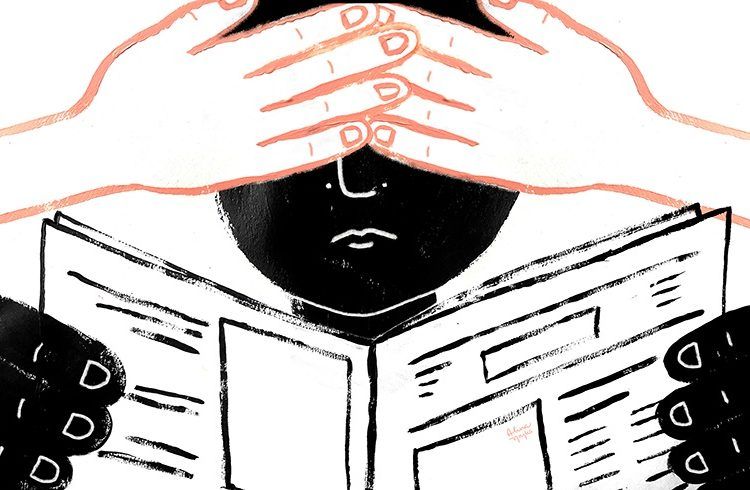We are facing a global crisis with global consequences. On the one hand, the Covid-19 crisis has exposed impoverished public health systems, weak labor rights, high rates of informal labor, lack of essential services, devaluation of care, and structural violence in public and private spaces. On the other hand, although the current crisis poses a sea change, that does not mean the same thing for all individuals, groups, countries, regions. The crisis does not equalize us; instead, it underscores preexisting inequalities including gender inequalities.
The crisis has different impacts on men and women. Along with the increase in the need for care work, the risk for labor rights and unemployment, and the lack of guarantees for sexual and reproductive rights, the pandemic increases security risks for women. For that reason, international and feminist organizations have urged governments to protect both women’s rights and lives through increased measures for confronting the violence.
As I will show below, in Latin America, the increase of risk for women has been verified inside homes (their own homes and the homes of others) and also in public spaces.
Indoors
The “stay-at-home” requirement during the pandemic has confirmed that homes can be unsafe for women for their rights and lives. Given mobility restrictions, there has been a dire global increase in violence against women in domestic settings. Dangerous homes are not new.
Before the coronavirus pandemic, two out of three women’s murders worldwide were committed by spouses/partners or relatives. At the same time, 137 women were murdered per day by a family member. In Latin America, one in three women claimed to have suffered physical or sexual violence in a relationship, and 77 percent of sexual crimes occur at home. During this crisis, police records and hotlines for victims of gender-based violence have become overwhelmed in China, Russia, the United States, Italy, Spain, and many other countries. The same has happened in Latin America, with the aggravating factor of previously high gender violence rates.
Studies in Argentina, Brazil, Chile, Colombia, Ecuador, Guatemala, Honduras, Peru, and Puerto Rico have verified this increase in calls for help or complaints. In other countries —Bolivia, Cuba, El Salvador, Nicaragua, and Venezuela — it is impossible to access systematic data. Social organizations identify cases associated with the pandemic. The following is some of the data available to date:
- Argentina: In the first ten days of quarantine, there were eleven femicides, and the telephone hotline for cases of gender violence was overwhelmed. Calls to the support line increased by 39% in April, compared to the same period last year.
- Bolivia: the national director of the Special Forces Against Violence (FELCV) reported that during the quarantine, until April 15, thirty-three cases of rape to minors were reported to the institutions. More than 1,200 women were victims of violence, including four femicides.
- Brazil: The government reported that in April, a 35% increase in the registration of domestic violence against women complaints compared to the same period last year.
- Chile: There was a 70% increase in calls for help due to gender violence during the first week of quarantine.
- Colombia: During the quarantine, calls to the hotline for cases of gender violence increased by 103%.
- Cuba: There is no systematic national data about gender violence from before neither during the pandemic. However, YoSíTeCreo in Cuba, a feminist platform from civil society, recorded seven femicides since the year began, from which five of them took place in the isolation conditions of the pandemic.
- Ecuador: In the first three weeks of quarantine, the Prosecutor’s Office registered 500 complaints of violence against women in their homes. Between March 16 and 30, 225 cases were reported for this type of event, and in 78% of these cases, the judges granted protection measures to the victim.
- México: In the first month of quarantine, gender violence calls to the 911 emergency line increased by 25%, and the National Shelter Network has registered 60% more requests for support. During that same period, the number of femicides exceeded that of women who died from COVID-19.
- Peru: During the first month of quarantine, 56 girls were raped, calls from women assaulted in their homes increased, and the need for temporary emergency shelters was higher.
In some countries (Argentina and Colombia, for example), requests for help have increased, but the same has not happened for formal complaints. This seems to be due to the difficulties women face in accessing these avenues for justice and they cannot go to polices stations for doing formal complaints.
Gender-based violence also occurs when women are working in the homes of others, as domestic or care workers. In those cases, violence is associated with the absence of labor rights. Paid domestic workers are a highly vulnerable group to physical and financial risk. Among them, Afro-descendant, indigenous and migrant women are disproportionately represented. Their work is already devalued, precarious, and informal.
In Ecuador, members of the National Union of Remunerated Domestic Workers have reportedcases of women who continue to be live-in domestic workers even when their employers do not take the necessary biosecurity measures. Others are forced to care for sick people without protection. In Brazil, the first death from COVID-19 was a domestic worker infected by her employers who had traveled to Italy. Many employees were fired without compensation or any protection. Without labor rights, domestic workers face acute situations of risk and violence.
Outdoors
Women and girls experience and fear various types of sexual violence in different public spaces. At this juncture, the restrictions on mobility have decreased the number of people on the street. This results in an increased risk of sexual violence and other forms of violence that women regularly experience in public spaces when working in public settings, living on the street, traveling to and from home and work (for example those performing essential services, or those working in the informal sector). There are similar reports in Canada, Chile, India, Kenya, Nigeria, the Philippines, and the US.
At the same time, evidence suggests that marginalized women (those with unstable housing, LGBTQI+, and migrants) are at higher risk of sexual violence and authoritarian abuse. During the pandemic, the militarization of public spaces has increased. In Latin America, even governments with more protectionist and social justice leanings have deployed security policies with negative consequences for individual and collective rights. Several countries have registered the excessive use of force and disproportionate power of police and military forces, denounced by the media and on social networks. People from the working class are less protected and more likely to be harassed. The exercise of police violence is both classist and racist. When the victims of police abuse are women, the violence tends to involve sexual assault. The fear and experience of sexual violence and crime in public spaces are highly gendered and racialized, impacting women’s freedom of movement.
The gendered nature of this violence has also been made clear with the controversial “Pico y género” measures decreed for a few days in Colombia, Panama, and Peru. According to these measures, women and men had alternating days of when they could leave their houses, thus making “visible” the compliance with mobility restrictions. The “Pico y género” measure could endanger the rights of the LGTBIQ+ population, trans people, and people with non-binary gender identities, who are more exposed to violence by police forces, as observed in Argentina, Colombia, Paraguay, and other countries.
The pandemic could also significantly affect women’s livelihoods, including in the informal sector. The informal sector accounts for well over half of all urban employment and is largely dominated by female workers (i.e. as informal vendors, domestic workers, and workers in tourism). In this context, as street traffic decreases and public markets continue to close, evidence in Bolivia and Ecuador suggests that female vendors are forced to sell their products on empty and unsafe streets and are losing them for lack of clientele.
Also, sex workers have a higher risk of violence. At least in Argentina, Chile, Colombia, and Mexico, social and feminist organizations have drawn attention to this regard. For example, the Union of Sex Workers of Colombia has said the situation is critical. Reduction in the demand for sexual services, increased securitization of the streets, and increased risks of contagion among those who continue working makes it impossible for them to earn a living. In Mexico, the hotels where sex workers worked have closed, and many are left in the street and experience greater exposure to the pandemic and risks of violence. Civil society organizations from various countries in the region design campaigns and initiatives to ensure the lives of these groups and assist them in police violence cases.
The call by international organizations and feminist movements to protect women’s lives have pushed some Latin American governments to take action in this regard. Argentina and its new Ministry of Women, Genders, and Diversity, has become the regional leader for facing gender-based violence. In some countries of the region, these measures have helped to facilitate requests for help and formal complaints in police stations by victims of gender violence, to declare services for confronting domestic violence as essential, and to expand the capacity of hotlines, shelters for women, and other actions of prevention. However, even though these measures exist, they often do not reach women with limited access to technology, those from rural areas, or women who live in situations of high control by their abusers. Some social organizations have sought to alleviate this by accompanying and enabling support to victims on local scales and in neighborhoods.
The United Nations Population Fund estimates that, if the restrictive measures of the pandemic continue, there will be, globally, in six months, 31 million additional cases of gender violence. Furthermore, another 15 million cases will be added to these numbers every three months. This is the situation that we might have to face, and it is highly connected to preexisting socioeconomic and racial inequalities and the ways that, unfortunately, the pandemic has been managed by governments.
Our voices and the voices of social organizations are vital for presenting all of this evidence, and pushing for the prevention of gender-based violence as part of political strategies regarding institutions and civil society. Nowadays, feminism is a transnational political actor with a significant capacity for mobilization and articulation worldwide. The denunciation of gendered violence and its different expressions has been vital to this process of transnationalization in political action. In this current situation and taking into account the evidence described above, the agenda of feminist organizations towards gender-based violence needs to be strengthened and expanded, and needs to demand government responses as part of the measures for confronting the global economic, political, ecological, and health crisis.
This article is part of the #DossierCorona thread #TransnationalFeminisms, which emerges from the online series “Transnational Feminist Dialogues in Times of Corona Crisis” organized by the Margherita von Brentano Center for Gender Studies at Freie Universität Berlin in cooperation with the MA Program Gender, Intersectionality and Politics at FU Berlin, Academy in Exile and Academics for Peace Germany.
First published here: https://trafo.hypotheses.org/24705?fbclid=IwAR0s5DUgLDkJcj3bEn8AUSCpGt2lDE8NNqgOdjFTnX7TjB3Ml-g0a449rP4
Créditos de la imagen:
• Casserole “noiseless” against gender violence and femicides in Argentina (March 30, 2020). Source: Titi Nicola, Wikimedia Commons.
Créditos de la imagen destacada:
• Casserole “noiseless” against gender violence and femicides in Argentina (March 30, 2020). Source: Titi Nicola, Wikimedia Commons.





